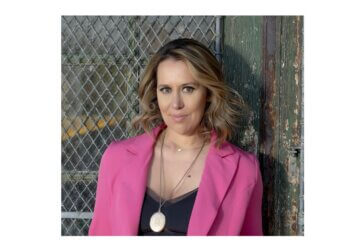
A new year is coming, which is the perfect time to get a little more organized. That might mean organizing your home or cleaning out your closets, but it could also mean getting your finances in order. If you’ve been meaning to get your financial situation organized but feel overwhelmed, we’ve got you. Here are some expert tips on getting financially organized to kick off the new year.
WHERE SHOULD YOU START?
Colleen McCreary, consumer financial advocate at Credit Karma, says the first thing you should do is an audit. But don’t fret, it doesn’t have to get complicated.
“This can be as easy as mapping out how much money you have coming in each month and how much you have going out each month,” she says. “Once you know what’s going out and coming in, you’ll have a better idea of what you’re able to stash away in savings. The audit can also pinpoint ways you can cut back on expenses (finally—a great reason to take time to cancel all those subscriptions we forget about until the charge comes through!).
McCreary suggests putting a framework in place after your audit, making sure you adjust it as needed. She offers up the 50/30/20 budgeting method where 50% of your income goes toward necessities, like rent and bills. Then, 30% goes toward non-essentials like dining out and holiday shopping. The remaining 20% goes toward savings or paying down debt.
Harriet Chase, founder and Chief Executive Officer at Aspen Grove Wealth Management, also advises that you be realistic when coming up with your particular plan or framework. She emphasizes that sometimes, life doesn’t go as planned, so it’s important to be flexible.
THE TYPE OF ACCOUNTS TO HAVE
As you’re organizing your finances, take some time to understand the importance and benefits of having different types of accounts. For instance, McCreary advises you open a high-interest savings account, which will gather a bit of interest on the savings you’re able to put away.
It’s also a good idea to have an emergency savings account, McCreary notes: “Emergency funds create a financial buffer that can keep you afloat in a time of need without having to rely on high-interest loans.” She recommends aiming for 1-2 months of expenses at a minimum, but 4-6 months is more ideal — especially as recession looms. Chase advises that six months is a good goal to aim for, adding, “When it comes to emergencies cash is king.”
Another important account to have, according to McCreary: a retirement account. She recommends you start contributing to one as soon as you can. “It might seem like a lot of money coming out of your paycheck at first, but you have to remember it will all come back to you one day,” she says. And don’t forget to take advantage of any matching opportunities from your employer.
TACKLE DEBTS
Just as important as saving is paying down your high-interest debts such as credit cards. If one of your goals is to pay off a good chunk of this type of debt in 2023, McCreary advises that you “consider starting with one line of debt and make a plan for how you can pay it off.”
One way to move toward this goal is to pay off debt with the highest interest rate first. To get started, McCreary advises you evaluate your debts to determine which has the highest interest rate, then “rank them from highest to lowest.”
BREAK DOWN YOUR GOALS
Part of staying on track with your financial framework is breaking down big goals into smaller goals. Chase recommends that you give each of your goals a name, review them periodically, and “stay committed to meeting them.”
McCreary agrees that breaking big goals into “micro goals” is a good thing. She explains that setting these small goals will help you “stay on track while slowly moving toward your next goal.”
STAYING ORGANIZED IN THE NEW YEAR
It’s one thing to set an intention of getting financially organized, and it’s another to stick with it. McCreary reminds us: “Developing solid financial habits is a skill that takes some practice and routine.” Start by performing an audit, trying out a flexible framework, identifying important accounts to open, and tackling debt or other financial goals with small steps. By this time next year, you’ll be able to look back at the progress you’ve made and set new goals for 2024.
MORE ON HERMONEY:
- 8 Financial Lessons We Learned During The Pandemic
- Are High-Yield Savings Accounts Even Worth It These Days?
- Everything You Need to Know About Emergency Funds But Were Afraid to Ask
- I Have No Retirement Savings. Now What?
SUBSCRIBE: Looking for more financial insights delivered right to your inbox? Make this thing official with a free HerMoney subscription today!







